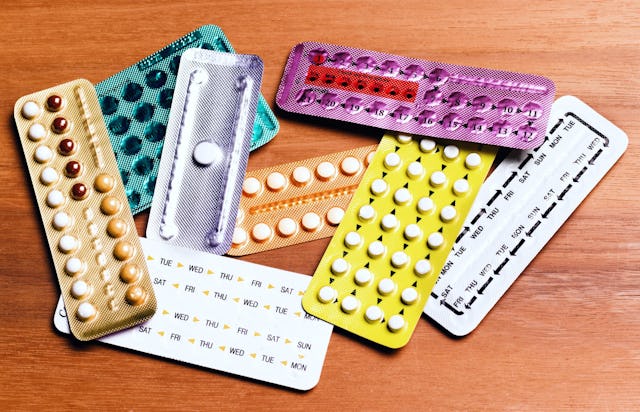Why I’m Stockpiling Abortion Pills & Emergency Contraceptives — & You Should, Too
We need to talk about what’s at stake.

Despite being safer than penicillin and Viagra, mifepristone remains under attack by conservatives seeking a nationwide ban. The abortion pill, as mifepristone is commonly known, has been available in the U.S. for 25 years, and is used in nearly two-thirds of the nation's pregnancy terminations.
Since 2000, when the FDA first approved the use of mifepristone for early abortion, more and more women have gained access to the medication. In 2023, an estimated 642,700 women used medication abortion to end unwanted pregnancies. Mifepristone is also used to treat early miscarriages.
In 2006, levonorgestrel (also known as the morning-after pill) became available over the counter. Not to be confused with the abortion pill, Plan B prevents pregnancy from occurring, does not cause abortions, and is used by approximately 24% of women. It currently remains legal nationwide, has a shelf-life of several years, and there's no limit to how much one person can buy.
Yet, even as modern medicine leaps forward, my 19- and 21-year-old daughters have fewer reproductive rights than I did at their age, and it's getting worse fast. In the three years since the Supreme Court overturned Roe v. Wade, women’s agency and healthcare access have changed dramatically. Donald Trump has taken office for a second time, and has given mixed signals about reversing FDA approval of mifepristone and criminalizing medical abortion, as well as emergency contraception.
That's why I've already started stockpiling both abortion pills and emergency contraceptives, and I'm not the only one. Telehealth provider Wisp saw a 600% spike in abortion pill orders in the 24 hours following Election Day, and a 1,000% increase in orders of emergency contraception in states like Florida and Texas, where the abortion pill is illegal.
Organizations like Plan C Pills and even some doctors encourage buying medication abortion in advance while you still can, whether you're pregnant or not. Abortion medication can be obtained from organizations within as well as outside the U.S. One estimate shows that overseas suppliers provide abortion pills to around 100,000 Americans, or enough pills to cover about 10 percent of the country’s annual abortions.
Most people ordering advanced provisions are worried about the quickly changing state of reproductive healthcare access and live in a region with abortion bans and restrictions, although even those living in states supporting abortion rights expressed concern that state laws could change, according to one study.
But this simple act of planning, preparation, and resistance is already a crime in Louisiana, where a mom was arrested and criminally charged last month for helping her daughter get an abortion using pills mailed from New York. While Louisiana was the first state in the nation to criminalize the mere possession of abortion pills, Texas and Indiana have already filed copycat bills, and 14 states have near-total bans on mifepristone. One Oklahoma bill also seeks to ban emergency contraception and IUDs, track women who've had abortions, and make delivering or possessing abortion-inducing drugs a felony punishable by 10 years in prison or $100,000 in fines.
Written by Oklahoma Republican Rep. Kevin West with Alliance Defending Freedom — the conservative legal group that overturned Roe and is now targeting the abortion pill — the Oklahoma legislation should be seen as a warning sign to the rest of the country, especially since Robert F. Kennedy Jr. recently confirmed his plans to target mifepristone as head of the Department of Health and Human Services.
So, while my state is considered one of the most progressive when it comes to reproductive rights, that won’t protect us from a nationwide ban. I’ve stockpiled abortion pills as well as emergency contraceptives, and just added some to a wellness care package for my daughter’s dorm room, right next to the cough drops, cold medicine, and pain relief.
Amber Campbell is a journalist and digital communications consultant writing about travel, health, culture, and parenting. She built the Rainier Valley Post, voted Best Local Website in Seattle by the Seattle Weekly (2012), and more of her work can be found at theambercampbell.com.